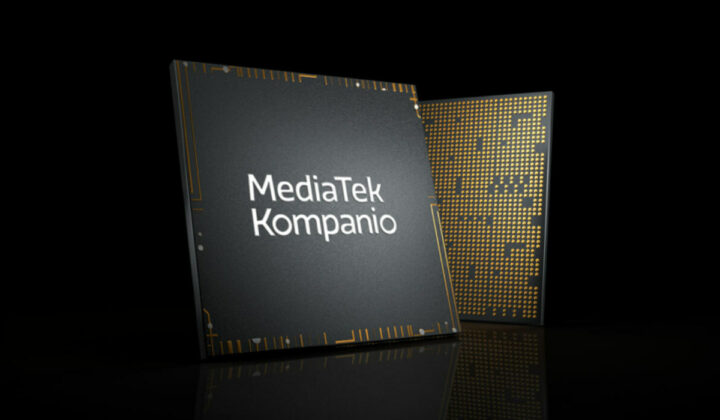MediaTek Kompanio 1380 is a 6nm octa-core Cortex-A78/A55 processor clocked at up to 3.0 GHz designed for premium Chromebooks such as the new Acer Chromebook Spin 513 (CP513-2H), which will compete against the company’s Snapdragon 7c based Chromebook Spin 513 (CP513-1H).
The processor supports LPDDR4x memory, UFS and eMMC storage, up to three displays, for example, the main display plus two external HDMI displays, WiFI 6/6E, and offers high-performance interfaces such as PCIe Gen 3 and USB 3.2 Gen 1.
MediaTek Kompanio 1380 (MT8195T) processor specifications:
- Octa-core CPU
- 4x Arm Cortex-A78 cores @ up to 3.0 GHz
- 4x Arm Cortex-A55 cores @ up to 2.0 GHz
- GPU – Arm Mali-G57 MC5
- AI accelerator – MediaTek APU 3.0 up to 4 TOPS
- VPU
- Video Playback – 4K HDR H.264, H.265 / HEVC, VP9, AV1
- Video Encoding – 4K HDR H.264, H.265 / HEVC
- Memory – LPDDR4x @ 2133 MHz
- Storage – UFS, eMMC, NVMe (PCIe)
- Display
- Up to 4K (3840×2160) resolution
- Up to three independent displays in different configurations, for instance:
- Up to 2x 4Kp60 and 1x 2.5Kp120
- Up to 1x 4Kp60 and 2x 4Kp30
- Up to 4K (3840×2160) resolution
- Camera
-
Up to 16MP + 16MP
-
Resolution up to 3840 x 2160
-
- Connectivity
- WiFi 6/6E (802.11 a/b/g/n/ac/ax)
- Bluetooth 5.x
- GNSS – GPS, BeiDou, Glonass, Galileo, QZSS, NavIC
- USB – USB 3.2 Gen 1 (10 Gbps)
- PCIe – PCI Express Gen 3
- Process – TSMC 6nm
The Kompanio 1380 looks somewhat similar to the Kompanio 1300T processor announced last July for tablets, but without a 5G cellular modem, a mid-range Arm Mali GPU instead of a higher-end Mali-G77 MC9, support for slightly low-resolution camera, and no mention of MediaTek HyperEngine 3.0 for gaming. Since it will support ChromeOS, running Linux might not be too difficult, but I would not expect a single board computer based on this processor, although it would be fun.
More details may be found in the press release and on the product page.

Jean-Luc started CNX Software in 2010 as a part-time endeavor, before quitting his job as a software engineering manager, and starting to write daily news, and reviews full time later in 2011.
Support CNX Software! Donate via cryptocurrencies, become a Patron on Patreon, or purchase goods on Amazon or Aliexpress





